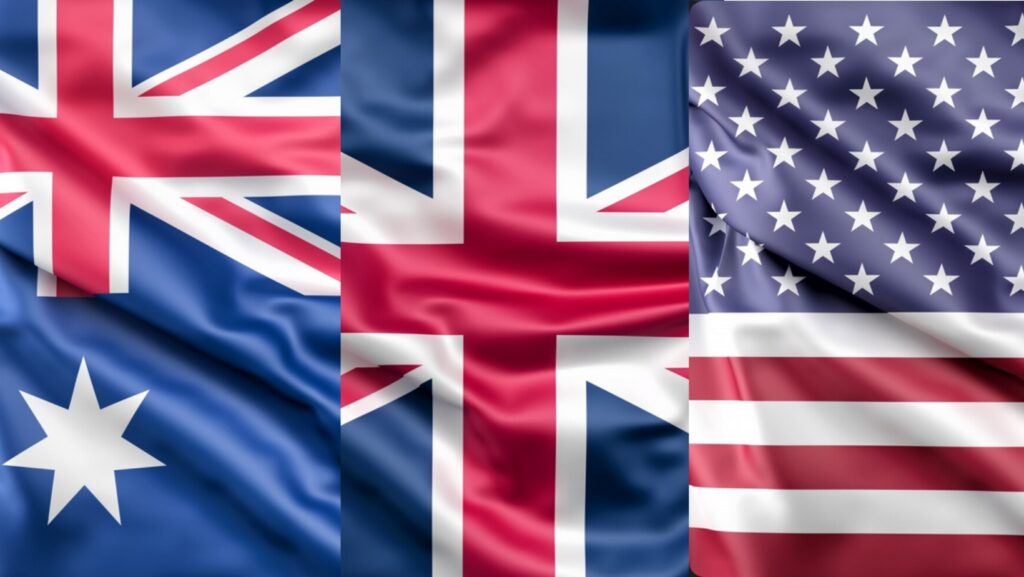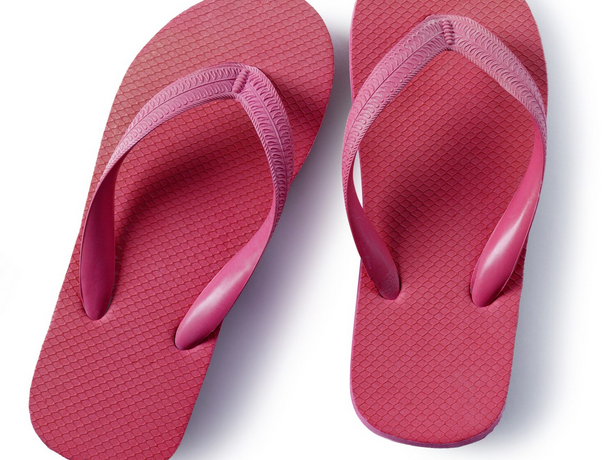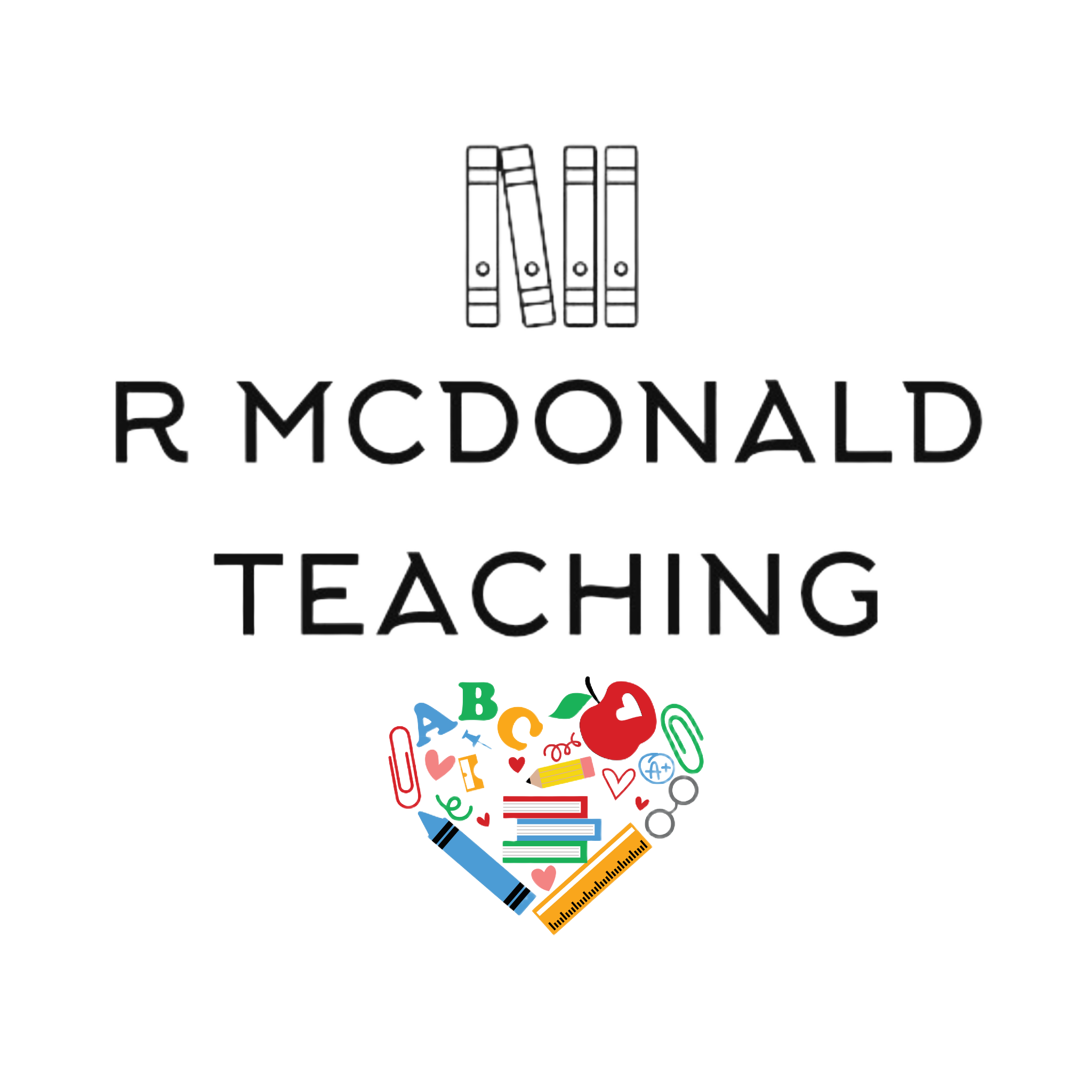
History
The linguistic history and progression of these three English forms is rich and there are many factors that contribute to the way we use them today. This section will be a brief overview of how and why these differences came to be throughout time.
All three types of English derive from the same ancestor language with British being the closest to its root.
The British colonized North America in the early 1600s, and the colonists maintained British English until after the American Revolution ended in 1783.
This was a large amount of time for the British English language to take root in American language. After the American revolution the people of America were cut off from the UK and their language developed on it’s own from there.
Australia was colonized by Great Britain starting in 1788. Before this the only culture and language in Australia was of the Indigenous Aboriginal people. Due to most of the people coming to Australia at the time being convicts they were more disconnected from British people from that point and therefore Australian English language was developed.
This is a small part of the history of these forms of English. Immigration, media, technology, lexical drift, isolation, Indigenous languages and much more have heavily influenced each in their own unique ways.
Pronunciation
One of the biggest difference between the three is the pronunciation and tone of words and sentences. Although a lot of British and Australian pronunciation compared to American English tends to be the same. Here are some key differences with examples.
| Australian English | British English | American English |
| The “R” sound: Australian’s tend to omit to R sound if there is a vowel before it or replace it with an ahh sound. rubber —> rubbahh art —> ahht | The “R” sound: British English is generally non-rhotic, meaning the “R” is often silent unless followed by a vowel. Similar to Australian English, the “R” is softened or dropped. rubber —> rubba art —> aht | The “R” sound: Americans pronounce the R sound if there is a vowel before it very clearly. rubber —> rubberr art —> arrt |
| The “O” sound: Australians use a more rounded “o” sound. This gives words like lot or dog a richer, fuller tone. | The “O” sound: British English also uses a rounded “o” similar to Australian English, often called the “short o” sound. | The “O” sound: Americans tend to pronounce the “O” more like an “ah” sound, as in father. dog —> dahg hot —> haht |
| The “T” sound: In both Australian and British English, the “T” is often pronounced as a softer, almost “Tj” sound in casual speech, especially between vowels. YouTube —> YouTjube | The “T” sound: In British English, the “T” is usually pronounced clearly but can also be softened to a “Tj” or glottal stop. | The “T” sound: In American English, the “T” is usually pronounced as a clear “T,” but in many casual or regional accents, it can sound like a soft “D”. |
| The “O” vowel in some words: In Australian and British accents, an “O” is sometimes softened to a sound resembling “EU,” which you might hear in words like go or no. | The “O” vowel in some words: British English softens the “O” vowel in some words similarly to Australian English, making it sound like “EU.” | The “O” vowel in some words: In American English, the “O” tends to be harder and more flat, less like “EU” and more like “ah.” |
| Intonation: The Australian accent tends to have a flatter intonation pattern with less pitch variation. When Australians ask a question, their voice typically goes down at the end. | Intonation: British English is often associated with more formal speech patterns and a slightly more clipped rhythm. More monotone or downward at the end of questions. | Intonation: American English has a more noticeable “sing-song” quality with rising and falling pitch changes throughout sentences |
Keep in mind there are many regional accents in each country, so you might hear variations even within Australia, the UK, or the US.
Spelling
| Australian & British English | American English |
| Uses “s” in words like “stablise“, “personalise” and “analyse“. | Uses “z” in words like “stabilize“, “personalize” and “analyze“. |
| Uses “u” in words like “colour“, “favourite“, “flavour“. | Omits “u” in words like “color“, “favorite“, “flavor“. |
| Uses the original French and Latin spelling of ‘re’ in words like “centre“, “metre” and “theatre“. | Uses the spelling ‘er’ for easier readability and pronunciation in words like “center“, “meter” and “theater“. |
| Uses a single ‘l’ in words like “enrolment“, “fulfillment” and “traveling”. | Uses double ‘l’ in words like “enrollment“, “fullfillment” and “travelling“ |
| “Aeroplane“ | “Airplane“ |
| Keeping the ‘e’ in words like “ageing“, “judgement“, “likeable“. | Dropping the e in words like “aging“, “judgment“, “likable“ |
| “Grey“ | “Gray“ |
| “Aluminium” is spelt with an ‘i’. | “Aluminum” is spelt without the ‘i’. |
Vocabulary
The meaning of words and the vocabulary used can be quite different depending on what country you are in. Here are some of the most common differences across the the countries.
One of the most noticeable and often entertaining differences between Australian, British, and American English is the vocabulary. While these varieties of English are mutually intelligible, there are many everyday words that differ across countries. Below is a comparison table highlighting some of the key vocabulary differences.
| Australian English | British English | American English | Widely Recognized | |
 | Lolly | Sweet | Candy | Candy |
 | Petrol | Petrol | Gas | Both widely recognized |
 | Boot | Boot | Trunk | Both widely recognized |
 | Torch | Torch | Flashlight | Flashlight (torch still understood) |
 | Bonnet | Bonnet | Hood | Both widely recognized |
 | Apartment/Flat | Flat | Apartment | Apartment |
 | Nappy | Nappy | Diaper | Diaper |
 | Bin | Bin | Trash can/garbage can | Trash (bin still understood) |
 | Tap | Tap | Faucet | Tap |
 | Thongs | Flip-flops | Flip-flops | Flip-flops |
| G-string | G-string | Thong | Both widely recognized (thong may confuse) | |
 | Chips | Crisps | Chips | Understood in context |
 | Hot Chips | Chips | French fries | Fries (chips still understood) |
 | Pram | Pram | Stroller | Stroller |
 | Dummy | Dummy | Pacifier | Pacifier |
| Postcode | Postcode | Zip code | Zip code | |
 | Check | Bill | Bill | Both widely recognized |
 | Capsicum | Pepper | Bell pepper | Bell pepper |
 | Jumper | Jumper | Sweater | Sweater |
 | Esky | Cool box | Cooler | Cooler |
 | Footpath | Pavement | Sidewalk | All widely recognized |
 | Car park | Car park | Parking lot | All widely recognized |
 | Rubbish | Rubbish | Trash/garbage | Trash and garbage |
 | Tomato sauce | Red sauce | Ketchup | Ketchup |
Grammar
While the core grammar of American, British, and Australian English is the same, there are a number of subtle but important differences in usage, prepositions, verb forms, spelling in verb tenses, and collective nouns. These differences are generally minor and won’t prevent understanding, but they’re useful to know—especially for formal writing, teaching, or learning English as a second language.
Prepositions
While British and Australian English mirror each other, American English has small differences in their use of prepositions. Here are some ways American English swtiches prepositions.
| Prepositions (context) | Australian and British English | American English |
| In / At (institutions) | “I studied Biology at University.” | “I studied Biology in College.” |
| In / In the (institutions) | “She is in hospital.” | “She is in the hospital.” |
| For / In | “I haven’t visited the cabin for years.” | “I haven’t visited the cabin in years.” |
| To / Through | “Can you work Monday to Friday?” | “Can you work Monday through Friday?” |
Past Tense Verb Forms
When forming the part tense of a verb Australian and British English sometimes prefer to use “t” at the end of the verb while American English treats these words as regular verbs using “ed”.
“Dove” is a unique past tense of the word ‘dive’ used by American English. Australian and British English use “dived”.
| Verb | Australian and British English | American English |
| Learn | Learnt | Learned |
| Burn | Burnt | Burned |
| Dream | Dreamt | Dreamed |
| Spoil | Spoilt | Spoiled |
| Dive | Dived | Dove |
Use of Present Perfect
The present perfect for recent events is often required in Australia and British English whereas it is often replaced by the simple past tense in American English.
| Australian and British English | American English |
| “I’ve just eaten.” “Did you make you bed?” “Jake has already taken the dog for a walk.” | “I just ate.” “Have you made your bed?” “Jake already took the dog for a walk.” |
Collective Nouns
British English allows plural agreement with collective nouns whereas American English uses singular. Australian English varies but usually uses plural agreement like British English.
| British English | American English | Australian English |
| “The class are feeling excited.” “The crowd are all riled up.” | “The class is feeling excited.” “The crowd is all riled up.” | “The class is/are excited.” “The crowd is/are all riled up.” |
Shall and Will
“Shall” is still used commonly is Australian and British English, especially in formal questions and speech. Whereas American English uses “should” or “will” almost exclusively.
| Australian and British English | American English |
| “Shall we begin the meeting?” “Shall I start dinner early today?” “I shall see if it can be done.” | “Should we begin the meeting?” “Should I start dinner early today? “I will see if it can be done.” |



